La Famiglia è Il Futuro At Zagato
August 9, 2019
Carrozzeria Zagato has long been one of the best-known names in the coachbuilding business. Less well known is the fact that today, Zagato is one of the very few — and by far the most important — Italian coachbuilders still owned and managed by the family that founded it.
The company’s founder, Ugo Zagato, was born in 1890 in Gavello di Rovigo, in the northeast corner of Italy. After a few years spent in Germany, Zagato returned home at age 19 to work for Carrozzeria Varesina before moving to become a department head at Ing. O. Pomilio & Co. in Turin, one of the most famous airplane manufacturers of World War I. There, the young Ugo was deeply impressed by the technology involved, including the use of lightweight alloys. When he founded his own carrozzeria in Milan, in 1919, he brought with him all that he had learned, and by 1922 he created a Fiat 501 with an alloy body shaped like an airplane cockpit. The car was so special that Alfa Romeo asked him to build the bodies for its racing cars — and that relationship soon brought legendary results. Zagato bodies ‒ especially two-seat Spiders ‒ became synonymous with Alfa Romeo’s legendary 6C and 8C sports cars of the 1920s and ’30s.
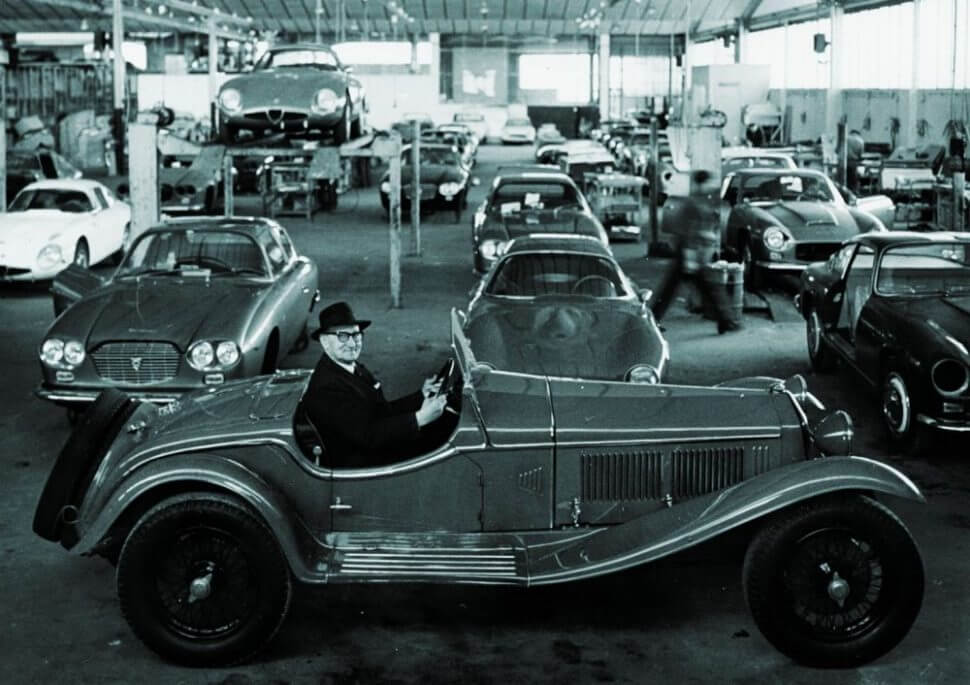
After World War II—the gold period for Italian coachbuilders—Ugo’s son’s Elio and Gianni entered the company and created the Fiat *V, the Alfa Romeo SZ and Kamm-tailed TZ, and the beautiful Aston Martin DB$ GT Zagato. This was the period of the double-bubble roof, victories by the hundreds of privateer drivers, and strong relationships with Abarth, Lancia, and Ferrari. Elio, born in 1921 and a graduate in economics from Bocconi University, was larger than life character who took charge of many aspects of the family firm. But more than anything else, he focused on winning races, which brought many customers to Terrazzaon di Rho, close to the Alfa Romero factory of Arese. His younger brother Gianni, born in 1929 and a graduate in engineering, had a more sedate approach to life: he managed the shop, and later, the production lines for the small-series production cars. When their father Ugo passed way in 1968, Elio stepped forward to manage the family business and Gianni became the technical director.
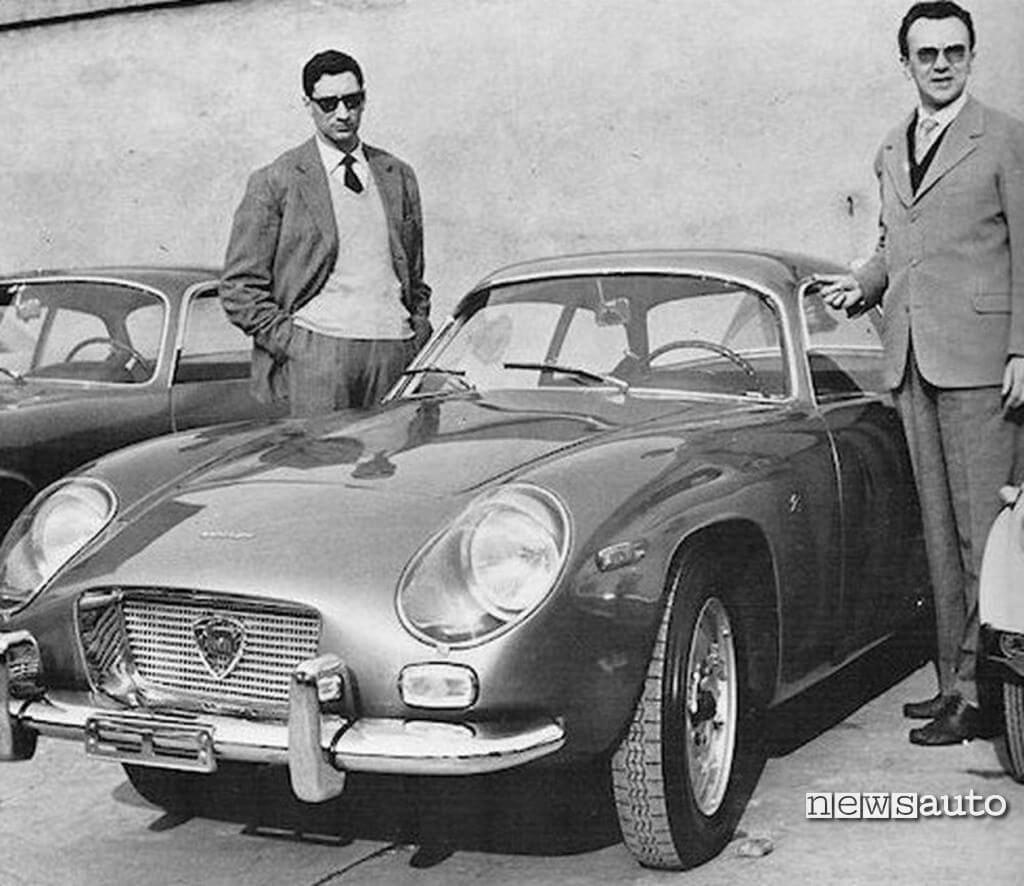
Elio Zagato married Laura Gianazza, the daughter of inventor and industrialist Aldo Gianazza, in 1954, and in April 1960 their son, Andrea was born — the man who now serves as the managing director and owner of Carrozzeria La Zagato. Andrea was immersed in the business as soon as he started work: “Dad left home when I was 5 years old, and I only saw him for a couple of weeks a year. My first real memories are of my grandfather Aldo. He was a successful businessman but had a rather Calvinistic approach to life. For instance, he owned a Mercedes W108 sedan in pastel grey so it didn’t attract attention, and he sat in the front so people didn’t realize he had a driver!
“My memories of my father are from summer holidays spent at the seaside — not my favorite place. He would often collect me in one of the amazing cars he was racing or working on at the time. Once, in a very fast Alfa Romeo TZ, we were chased by the police before stopping for lunch and hiding the car behind the restaurant!”
Andrea was also close to his uncle, Alberto Gianazza, an animal lover who showered the young boy with many gifts, including toy animals and a small farm. After reading about the veterinarian James Herriot, Andrea quickly decided on his future: “I would graduate from school as an animal vet and become a farmer in Canada — with a model farm!”
When Andrea grew a bit older, his father would sometimes bring him to the company, where he was allowed to drive the Zele, an electric fiberglass car built by Zagato. After finishing high school, he still dreamt about his Canadian farm but his father urged him toward economics: “He was very good at getting people to do what he wanted without pushing them too much . . . and without them suspecting it! I can’t imagine a better, more naturally gifted leader.”
As a youth Andrea had owned several motorcycles that were gifts from his father, but when he turned 18, much to the relief of the rest of the family, he moved on to cars: “My first car was the company’s old Fiat 500 Giardinetta, and that was followed by an Autobianchi A112 Zagato — one of the few made by us with the squared front lights from the Fiat 127. Then in college, I got something much cooler, a Lancia Delta HF Turbo that I personalized, and, thanks to my dad, I got a very unique registration plate: Mi00000Z.”
After graduating from college, Andrea worked for a time at Zagato — and even introduced the very first PC — but he had a plan to move to London and work for a financial firm: an offer was on the table. Then, out of the blue, his father had a heart attack in 1982, and things changed: “We weren’t close but I soon realized that he was, otherwise, alone.”
At the time, Zagato was facing many difficulties. It was close to losing a contract with Maserati to build their Spyder because the unions at Maserati were complaining they were losing the work. And there was also a global reduction in car sales. So Andrea agreed to take care of Zagato for six months to give his father time to recover, and then he’d be free to fly to London. Andrea smiles at the thought. “That was 37 years ago, and I now fear that the offered position in London is no longer available…”
Thankfully Elio recovered and, during his rehabilitation, Andrea discovered the real man: “He was somebody that I liked because he was so tough and positive. This was the most important ‘sliding door moment’ of my life.”
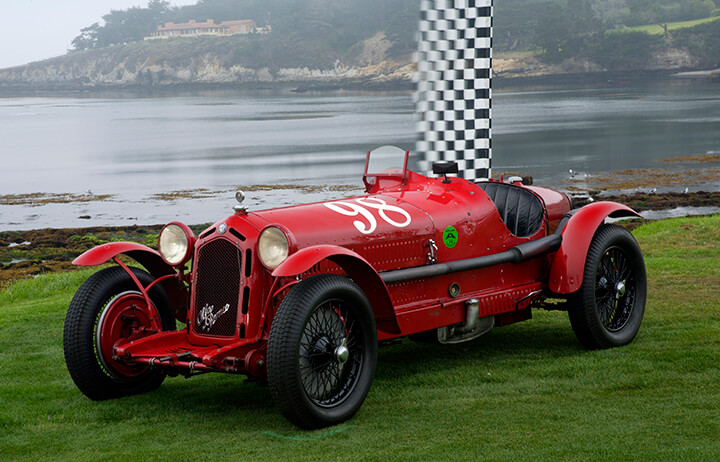
One of the first things Andrea did at the firm — the only thing he felt trained to do — was to check the numbers from a financial perspective. He discovered that for every Maserati Spyder they built the company was losing 400,000 Lire (about $175). He also discovered that after building the V8 Aston Martin Zagato the company actually made some money “but most of it came from selling the one car we had kept.” Andrea negotiated for compensation from Maserati to relieve them from their commitment, and then he had to decide what to do with the money. His uncle wanted to replace the Maserati contract with one from Fiat or Alfa Romeo, or even a Japanese manufacturer: “Uncle Gianni obtained an agreement from the Nissan sports brand Autech to design the Stelvio AZ1 — so ugly that, even today, I try to hide it!” The car debuted in Japan in front of 800 journalists — and an ice-cold silence froze the room. “It could have been a real opportunity,” says Andrea, “but it was lost.” In-house relations between Andrea and his father and Gianni were not great with the latter wanting to keep the manufacturing plant open while Andrea tried to set up the Zagato Style department. Andrea asked his friend Walter da Silva (then in charge of Alfa Romeo Centro Stile) to help improve the Stelvio: “Considering the situation, he did a very good job, and we created the Autech Gavia, which was good enough to sell the last 30 or 40 Stelvio chassis that remained. But we were still living day by day, without a strategic plan.”
The Pebble Beach Concours d’Elegance is primarily responsible for enabling Marella and I to celebrate together the first 100 years of Carrozzeria Zagato.
ANDREA ZAGATO
Then, in 1986, technological innovations changed Zagato’s direction. Andrea remembers the time well: “Vittorio Ghidella, a genius, had just joined Fiat and was bombarding the Fiat company with innovative ideas. At Zagato — where I was already considered an electronic wizard because I could use a PC — I discovered that Dassault, the French airplane manufacturer, was designing and manufacturing using Cad-Cam technology. I immediately went to see Cad-Cam pioneers Forma & Tecnologia (later incorporated in Zagato) at their office in Milan, and I met 13 amazing people — 5 of whom are still working with me at Zagato, including Maurizio Azzini, the guru of the system, and Giuseppe Bizzarrini, the son of Giotto. Vittorio Ghidella had already installed the new Cad-Cam system at Fiat, and in 1987 they launched the prototype Alfa Romeo ES 30, fully designed in Cad-Cam.
“To appease the other side of the family, Dad and I agreed to manufacture the production model, the Alfa Romeo SZ. That contract gave us security, which was enhanced when Aston Martin decided to buy 50 percent of Zagato.”
The real turning point, however, came in the 1990s when Andrea closed down the production line: “It was a tough decision, but it wasn’t possible to keep the company going with this department loosing so much money. Working with Cad-Cam, we became the shop window for IBM, and everybody came to have a look at Barlone, the nickname Forma & Tecnologia gave to the IBM computer that managed the Cad-Cam processes. It was crazy, we were in a 250 square meter office, as white as an operating theater, inside a huge, almost abandoned building. Suddenly, we were considered to be the most advanced Italian firm in the business.”
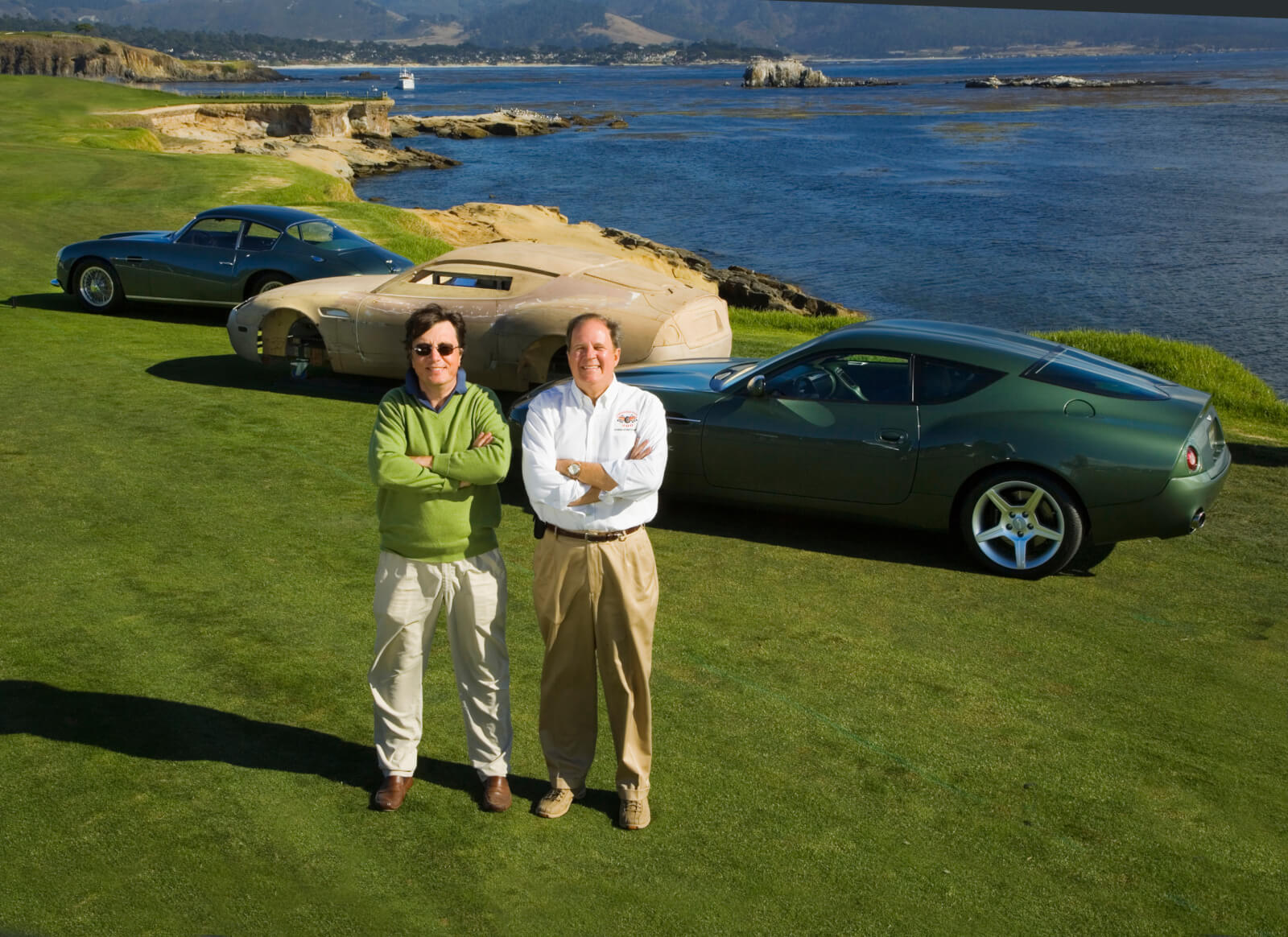
With the help of Andrea’s friend Walter Da Silva, Zagato designed the Seta and the Bamboo for a potential small production run. Following these prototypes, the Lancia Hyena was designed for Fiat, but Paolo Cantarella, just promoted to be the new boss of Fiat, was only willing to build cars designed by him, and, after a long “go-no-go” period of indecision, he stopped the Hyena and created his Lancia K Coupe in 1994. It is fair to say that when the Hyena project went bust, Forma & Tecnologia, and its technology literally, saved the company.
“I knew that production manufacturing by coachbuilders was ending. If Pininfarina and Bertone had seen that, too, they probably would have survived and would still be managed by their founding families. I kept Zagato going because of the technology, selling our Cad-Cam work to the world, including all sorts of product design — and a lot of work for the yachting industry.” There was also work for smaller car companies such as Bugatti with the EB 110 and Lotus with the Elise.
It was around this time that Andrea hired Ercole Spada to be a consultant: “In order to get him, I had to promise that I’d let him design a Ferrari, which was why we made the Ferrari F.Z. 93 — not a very beautiful looking car, but with some very interesting features, like the use of a Formula 1- style front end. To me, the real duty of Spada, more than pure design, was creating a small team of young designers, teaching them as much as he could while teaching me about Zagato. He taught me that Zagato had to be lean, with a functional beauty and only small volume production — the concept we are still successfully using today.”
In 1993 Nori Harada, then working at the IDEA Institute in Turin, was approached by Zagato: “He was still sketching by hand, but with such skill that the sketches looked like paintings. As soon as I saw his work, I fell in love with this Japanese guy. After more than 25 years of working together, I strongly believe that Nori is a genius. With him we returned to being a style provider to many firms — from Alfa Romeo to Lamborghini as well as Grifo 90, the company that is aiming to recreate Iso Rivolta.
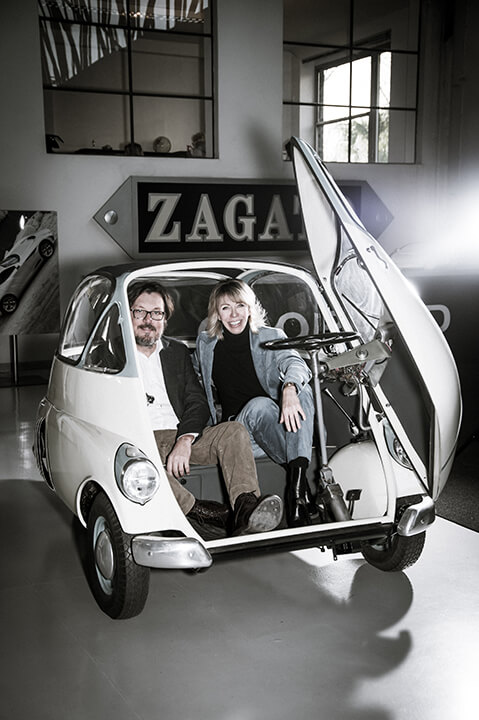
Talk of Iso Rivolta introduces Marella Rivolta, granddaughter of the Iso Rivolta founder Renzo, daughter of Piero Rivolta — and wife of Andrea. The couple’s romance could be from a film script: “My friend from Pebble Beach, Winston Goodfellow, wrote a wonderful book about Iso Rivolta and he knew the family well. When Grifo 90 asked for some support, we gave it and Winston came to visit me at Zagato for an interview. As he was without a car, he asked for a ride home as he had to meet ‘somebody.’ When Marella showed up, I had never met her before — and I was hit hard! She was amazingly beautiful and incredibly intense. I was standing there — a sort of car nerd — but she was obviously curious about me. We arranged to meet again to talk about work and, trying to impress her, we met at my friend and financial partner Giorgio Schoen’s very cool office, surrounded by his classic Ferrari collection.” After that first meeting, there were several more for both business and pleasure. “At one meeting, negotiating the terms of the Iso contract, my partners were stunned when I gave away everything without any discussion — I was in love and it was very obvious — I think I married her just to limit the company’s losses!”
Afterward, Andrea and Marella met again a couple of times and she then told him she had to go to Pebble Beach for the Concours and also the Iso Rivolta club meeting and then on to Detroit as she hoped to get the Ford V8 engine for the new Iso. “I have been an Honorary Judge at Pebble Beach since 1992 but I played it cool. I just arranged a date to meet again in August at Pebble Beach. That was how our love grew, but it wasn’t just our own relationship; we also met Jacques Nasser who was on his way to becoming the next CEO of Ford and he was crazy about Aston Martin [then a part of Ford]. Meeting Nasser had a deep impact on the future of Zagato because he made it possible for the contemporary return of the partnership between Aston Martin and us — still today one of the most important relationships for Zagato.”
Andrea’s special relationship with Pebble Beach actually dates back further, to 1992, when the Concours organized a celebration of Zagato: “For me it was a total surprise, and I have to tell you that, aside from marrying Marella, Pebble Beach has had an almost equal impact on Zagato. It was where I had my vision for the future of the company after discovering for the first time the collector car world and the high-end car market. I have no problem in admitting that what Zagato successfully does today — our whole concept of ‘Atelier’ — originated while walking the field at Pebble Beach. The Pebble Beach Concours d’Elegance is primarily responsible for enabling Marella and I to celebrate together the first 100 years of Carrozzeria Zagato.”
An Unmatched Tradition of Automotive Excellence since 1950
August 16, 2026 — Just 176 Days left!
